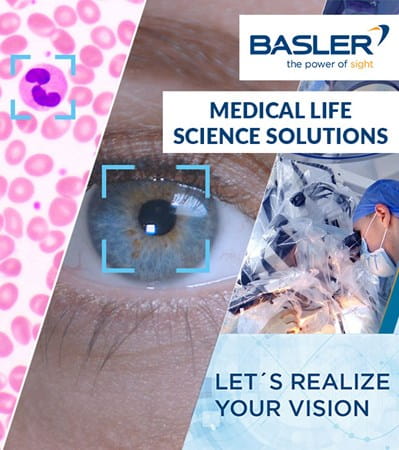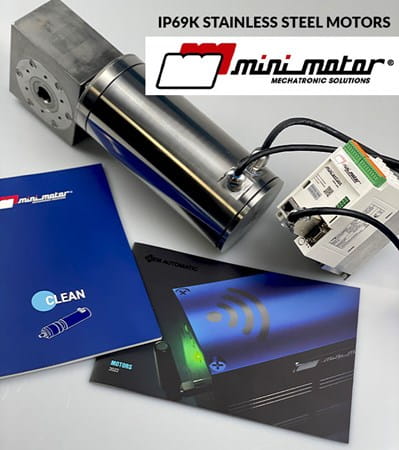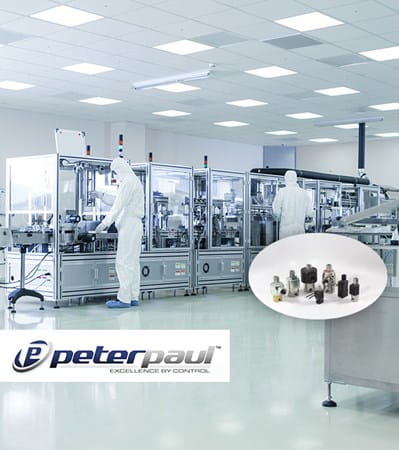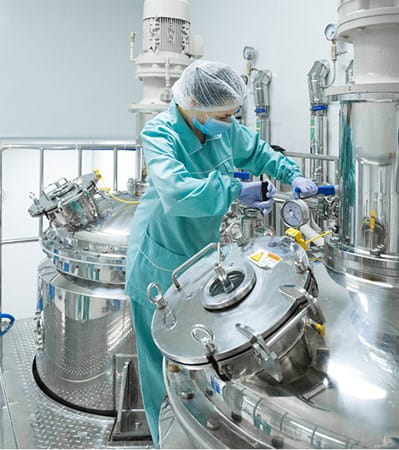Medical endoscopy & Flexa sensor technology
The medical market demands robust, quality and dependable products often subject to stringent standards and specific requirements. The Flexa sensor technology products are developed with the medical market in mind. Medical technology has been a big focus for Flexa for many years as they maintain a high level of experience in providing high-quality protective conduits to many medical applications.
Flexa develops and produces cable protection devices to feed cables and wires into machines or panels in a confined space, offering cable protection devices made of plastics or metal, including the appropriate connectors featuring any customary type of thread. Fit for the medical environment, conduits are liquid-tight and can be used at temperatures between –60°C and +600°C, as well as being approved for up to IP 69K.
With medical endoscopy being such a crucial application, let’s look at how Flexa has developed reliable and affordable solutions for the medical market.
What is medical endoscopy?
Medical endoscopy is a procedure to view organs within the body. Using an instrument called an ‘Endoscope’ (a long, thin tube), the inside of the body can be shown on the screen. There are many different types of endoscopies making this a very complex application.
Flexas’ conduits are used to feed cables between the machine and the body, showing an image of the inside of the body using a camera.
What do medical environments require?
Clinical settings must meet the strictest hygienic requirements and remain easily sterilisable. Medical products for use in these environments should be hygienic, sterile, easy to clean, flexible and sterilisable.
Flexa sensor technology and endoscopy – How it works
These flexible protective conduits are used to protect the cables and help feed wires through.
Tiny dimensions fit for small areas
Flexa is known for their conduits tiny dimensions that have become possible from Flexas’ continuous product developments. The Flexa metal and plastic tubings tiny dimensions meet high-precision requirements that are suitable for use in complex situations.
Hygiene
Thanks to Flexas’ gliding properties and smooth surface, they meet the highest standards regarding hygiene and disinfection and have a super easy to clean surface. Flexas’ protective conduits are characterised by high stability.
IP ratings are required in medically sensitive applications to protect the equipment, patient and operator. All of the cable protection products have an IP rating, and the ones below are fit for medical applications, in particular.
Product newsFlexas’ medical range:
There are two types of protective conduits you can choose from in medical applications.
Special protective conduits have very small dimensions and are available in metal and plastic, sheathed with different materials and the relevant fittings that work with your application.
Below are the special protective conduits:
PS-VA | PSL-VA
Special protective conduit for medical sensor technology and beam wave guide technology.
Facts:
- Special protective conduit
- Helix made of stainless steel
- Fibreglass braiding
- Silicone rubber sheathing
- Stainless steel V2A | Braiding: fibreglass | Sheathing: silicone-rubber
- -50°C ... +180°C
- Protection class [acc. to EN 60529]: IP 68
- Properties: flexible, air and liquid-tight, temperature resistant, low flammability, no appearance of toxic and corrosive fire gases, widely resistant to solvents and chemicals, free of halogen and cadmium
FDW-VA
Special protective conduit helix for medical sensor technology and beam wave guide technology
Facts:
- Special protective conduit
- Stainless steel
- -200°C ... +600°C
- Properties: flexible, temperature resistant, widely resistant to solvents and chemicals
Plastic protective conduits are another option in medical applications. Main features include being highly flexible and air and liquid tight. These plastic conduits are also expandable and compressible, offering optimum cable protection. You may use these conduits as suction hoses too.
Below are the plastic protective conduits suitable for medical applications:
SPR-VA
Protective metal conduit for medical sensor technology.
Facts:
- Strip wound
- S profile
- Stainless steel
- Properties include highly flexible, stretch resistant, lateral compression resistant
- -200°C … +600°C
- Protection class [acc. to EN 60529]: IP 40
SPR-PVC | SPR-VA-PVC
Protective metal conduit for the medical and sensor technology
Facts:
- Strip-wound, s profile
- PVC sheathing
- Cold strip galvanised | PVC
- -25°C ... +90°C ^ +100°C
- Protection class [acc. to EN 60529]: IP 68
- Properties: weatherproof, watertight, widely resistant to seawater, acids and oils, free of silicone and cadmium, very flexible, stretch-resistant, compression-resistant
- Non-flame propagating acc. to DIN EN IEC 61386-23 (VA)
Medical applications can be complex and products must be correctly specified. If you are looking for cable protection products for use in the medical industry, email [email protected] and a technical advisor will help you.
Related Products
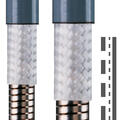
PS-VA / PSL-VA
- Stainless steel V2A | Braiding: fiber glass | Sheathing: silicone-rubber
- Stretch resistant
- Air and liquid-tight
- Widely resistant to solvents and chemicals
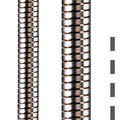
FDW-VA
- stainless steel
- widely resistant to solvents and chemicals
- Highly flexible
- temperature resistant
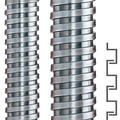
SPR-VA
- Stainless steel
- Highly flexible
- Lateral compression resistant
- Provides protection against high mechanical stress
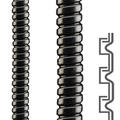
SPR-PVC / SPR-VA-PVC
- Cold strip galvanized steel
- Stainless steel | PVC
- Good tensile strenght and compression resistance
- Provides protection against high mechanical stress
- Highly Flexible
